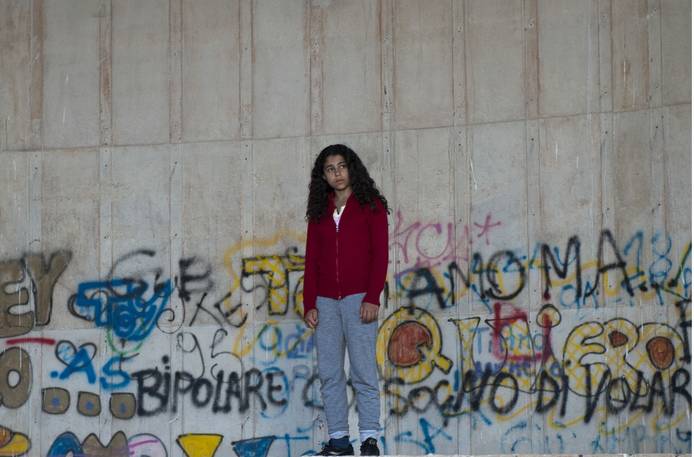


“It’s not a movie about a hero but a true story on a topic that concerns us all.” With Nour, Maurizio Zaccaro [2] brings today’s biggest humanitarian crisis to the Torino Film Festival [3]. “Over 20 thousand people are dying in the Mediterranean and nobody is moving a finger to identify them. They die without an identity.”
Inspired by the book “Lacrime di Sale” (salt tears) by Pietro Bartolo and Lidia Tilotta, the films integrates the story of the doctor from Lampedusa who welcomes and treats the migrants landing on the island, with that of Nour, a 12-year-old Sirian girl who journeys from Libya to Lampedusa without her mother. “I tried,” says the director “to work on the line between the lived truth, as described by Pietro Bartolo in his book, and the narrated truth, that of Sergio Castellito - the actor who plays him - in order to make everyone feel close to this complex story.”
The film takes place entirely in Lampedusa, between the emergency room in which the doctor takes care of the refugees, the pier on which the boats arrive, a makeshift radio station, and the welcome center. “I spent 30 years in Lampedusa, I had a mission, a responsibility as a doctor which I could not ignore,” says the doctor who became a symbol of solidarity for his role on the island that has become the door into Europe. Now a member of the European Parliament in Brussels, he also appeared as himself in Gianfranco Rosi’s Fuocoammare, which won the Golden Bear at the 2016 Berlin Film Festival.
How has the phenomenon of immigration changed since Fuocoammare?
Pietro Bartolo: Not much. People are now accustumed, indifferent to tragedy. They turn away from the umpteenth shipwreck. But they aren’t evil, they just aren’t informed correctly. I wrote books to tell the truth in a time in which we are bombarded by fake news that spread hate. But I am convinced that we mustn’t give up. Film continues to be a very powerful tool and I hope that Nour will contribute to the diffusion of values that give our life meaning.
You are known as the doctor from Lampedusa who saved and cured many human lives.
Pietro Bartolo: I am not a hero, I am a doctor. Saving human lives is not a heroic act, it’s a duty. I treated 350 thousand people and I listened to them. I saw hundreds of dead bodies. There have been times in which I felt discouraged and wondered why I had to bear all of this. The biggest pain comes from seeing that the years pass and Europe still has not found valid solutions to avoid the deaths in the Mediterranean. But there have also been good moments, which gave me the strength to go on, such as helping to deliver a baby or giving hope to those who thought they had lost it forever. And I want to thank the film and the director for giving me the chance to share my experience and show the way that we have unfortunately lost, that of solidarity.
But movies alone are not enough. What can we do to bring about a true change?
Changing the narrative, the way we talk about migrants is essential. We are facing an issue that is at the same time political, philosophical, legal, and athropological. I travel across Europe to assert the right to life, which these people have been denied. Migrants are human beings, not “invadors.” They are wealth, they are culture, they are a source of growth for our country, and they should be treated as such. They have the right to look for a better life. They are fleeing war, hunger, violence, and we are the ones who put them in the condition of leaving because we took away their resources, we colonized them. The film’s message is clear: today we have the duty to help them. We have to take down the physical walls, which like the one between Mexico and Arizona stops those who flee, and the mental ones which are even more dangerous!
Source URL: http://test.casaitaliananyu.org/magazine/focus/art-culture/article/pietro-bartolos-lampedusa-torino-film-festival
Links
[1] http://test.casaitaliananyu.org/files/nourdimauriziozaccaro6910jpg
[2] https://en.wikipedia.org/wiki/Maurizio_Zaccaro
[3] https://www.torinofilmfest.org/en/